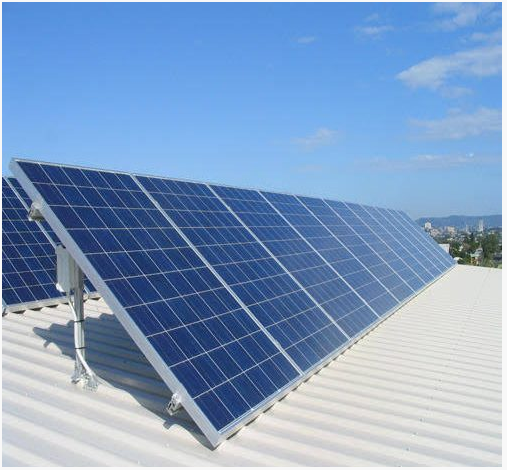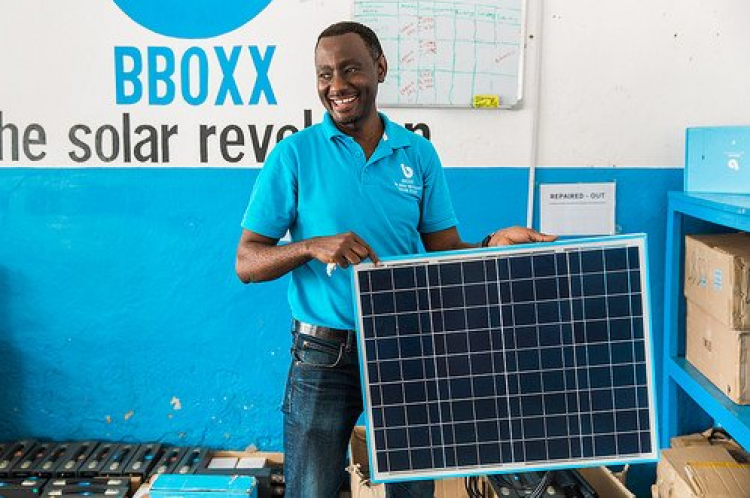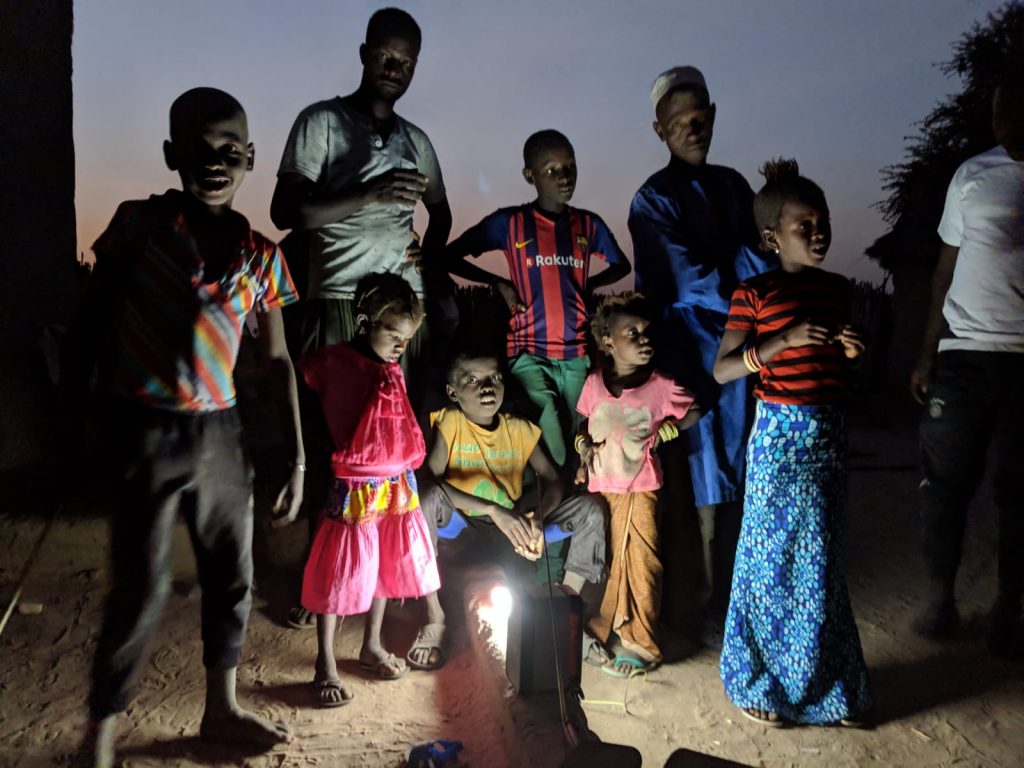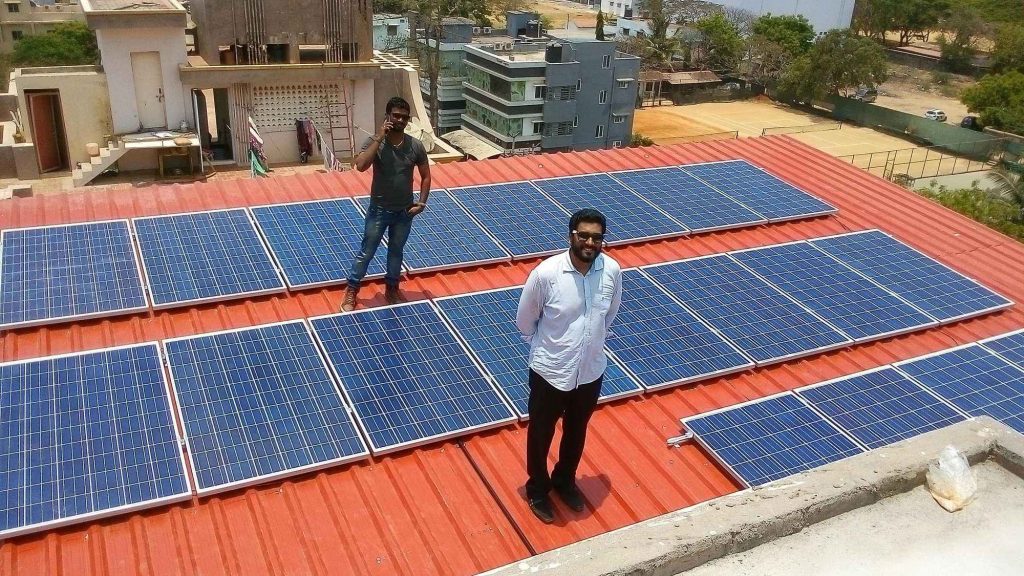Nigerian solar developer, Daystar Power has raised $4 million from SundFunder, a solar finance company to bring solar power and energy efficiency solutions for Nigerian businesses.


According to the solar company, the funds will be used to provide power at a reduced cost for businesses in the commercial, industrial, and agricultural sectors in the country.
Speaking on the funding, the co-founder and executive of Daystar Power, Christian Wessels expressed delight on the support from SunFunder. He added that the support will enable them to continue providing clean and affordable power to West African businesses.
“We are happy to partner with SunFunder in our mission to bring clean, continuous and affordable power to West African businesses in support of their growth and environmental goals. The support of SunFunder enables the beginning of a new phase of accelerated growth for our company.”
Christian Wessels, co-founder and executive of Daystar Power
The debt finance comes after the company raised £500,000 and $10m for its West Africa expansion last year. The new funds will raise up to 3MW of commercial and industrial (C&I) projects for clients including top-level financial institutions and other small and medium-sized enterprises (SMEs). It also aims to mitigate over 100,000 tons of CO2 emissions annually.
Solar power in Nigeria
Nigeria, with a fast-growing population of about 180 million, has a total power capacity of about 12,522MW with her peak generation output at 5,074MW’s. The power generated isn’t enough even. Put into perspective, South Africa with a population of 52.4 million generates 35,819MW.
The lack of capacity to meet the countries high energy demand causes Nigerians to seek alternative sources of power. Approximately 80% of Nigerians use alternative sources of electricity supply, particular generators to supplement their inadequate energy.


However, Solar power provides a better and preferable source of energy to cater to the growing demand for power. According to a recent study by Bloomberg New Energy Finance, Nigeria has the largest potential for C&I solar in Africa due to its high opportunity of replacing diesel power.
Nigeria’s solar capacity
According to scientific analysis and recorded weather readings, solar radiation in the Northern part of Nigeria can generate up to 7.0 kilowatt per meter square (7.0kw.m2) per day. Coastal areas like Lagos can record an average of 3.5 kW.m2 per day.
The Financial Nigeria International reports estimates that about 600,000 megawatts can be generated by deploying Solar PV panels from just 1% of Nigeria’s landmass. The current solar penetration in the country is about 8% of the global off-grid household population of 434 million households.
Solar power adoption rising slowly in Nigeria
Nonetheless, solar power adoption is on the rise with the increase of solar power startups like BBOXX, Lumos and small-scale solar business in Nigeria. Also, the increased amount of fund invested in the sector has assisted in its growth.
Suggested read: Off-grid Solar Company Lumos Gets Part of $75 Million Grant from FG to Light a Million Nigerian Homes by 2025


However, the adoption of solar power has been very slow both in residential homes and businesses. Although C&I sector accounts for just 17% of Nigeria’s current electrification rate of about 59%, it still has the slowest adoption rate. This is because the huge amount of power the business need cannot be fulfilled by common residential solar units.
Daystar with its specialized end-user solar power offering can help improve adoption in the market providing at least a 20% reduction in energy costs for businesses in the commercial, industrial, and agricultural sectors. It could also cause about 50% reduction in diesel consumption.
Why is solar power not yet popular despite increasing funds and number of solar companies?
Misinformation and lack of awareness about solar power in a significant number of Nigerians explains why it isn’t popular. Nigerians, majority of whom are low-income earners, still think solar power is for the rich and not affordable because of its high installation cost.
Another major reasons why solar power is still not popular after years of introduction is because of the reasoning of average income earners, especially those who live in rented apartments. To them, installing the facilities in another man’s house just won’t work.


Although solar power is affordable, it isn’t cheap enough for a large number of middle-class families due to the low income and inflation rate in the country. For instance, N150,000 can guarantee solar power for a family in one or two-room apartments. It is however, not cheap as an average Nigerian family makes about N30, 000 to 50, 000 per month making purchasing it very expensive.
However, solar power companies like MTN’s Lumos are already adopting a business model that caters for the high cost of installation. It does this by reducing cost as well as employing a subscription-style payment system to keep the business profitable.
The lack of easy access to local funds to propagate the adoption of solar power have also stunted the popularity of solar power. Most investment in solar power comes from foreigners.


Many banks fear to invest in solar due to low capital resources and purchasing power of large parts of the population. However, if they do, they do it at high interest rates between 23% and 29% that makes it difficult for companies to run a successful model.
Unreliable power supply is a major hindrance to Nigeria’s economic growth. The International Monetary Fund (IMF) estimates that a lack of access to reliable electricity costs Nigeria an estimated $29 billion a year.
The costs for solar power has continue to fall, making the technology increasing affordable for Nigerians. Also, the present high demand for reliable power in Nigeria makes it ripe for massive solar deployment. This will in turn attract more investors. Already many individuals/businesses are already opting for off-grid solar systems.






